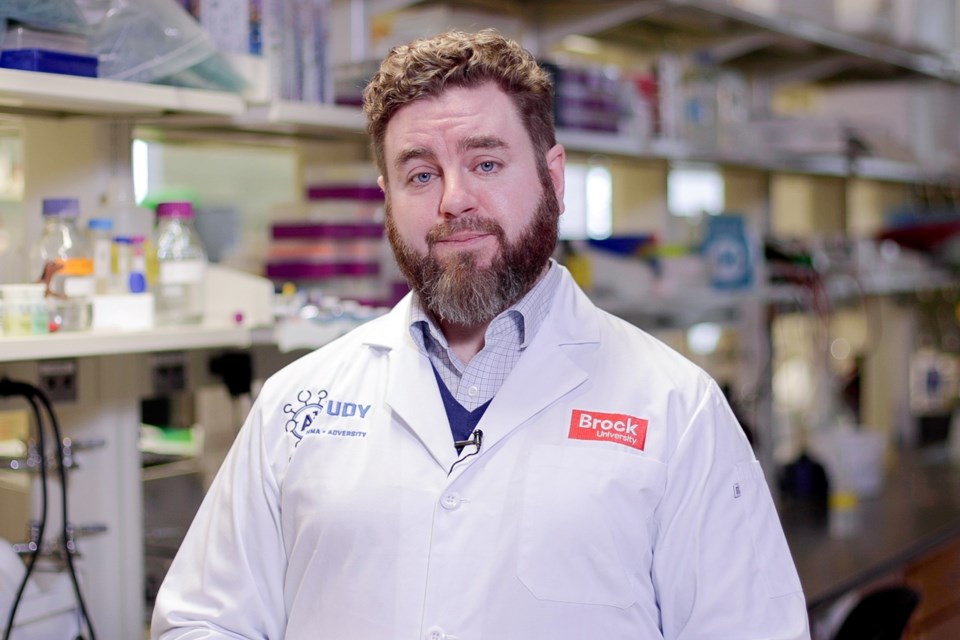With measles cases on the rise across the country, a Brock University immunologist says the highly contagious virus may be just the start of other vaccine-preventable illnesses making a return.
“Unfortunately, I think measles is just the harbinger here,” says associate professor of immunology and Director of the Inflammation and Immunity Lab Adam MacNeil, whose research explores how immunity interacts with viruses, allergens and people’s lived experiences. “Measles is just the most contagious one that is going to be the first of its kind to make its presence known. In the coming years, we may see other diseases emerge that are vaccine preventable and were essentially eradicated from our communities,” he says. “It doesn’t have to be this way.”
While measles spreads quickly, it is easily prevented with two doses of the measles, mumps and rubella (MMR) vaccine, usually administered in childhood. Unlike the severe acute respiratory syndrome coronavirus 2 (SARS-CoV-2) that evolved throughout the pandemic and required updated vaccine formulas, the measles virus has not changed, nor has its vaccine, says MacNeil.
“We know quite a lot about measles — how it works, how it transmits. We even know that a 95 per cent vaccination rate is required to prevent it from spreading through the community,” he says. “What has changed is the social context. After several years of living through a pandemic, talking extensively about vaccination in a highly politically charged environment, there is some understandable fatigue around the topic.”
Interrupted and missed medical appointments combined with a proliferation of misinformation and disinformation has led to a drop in the number of children who are up to date on their childhood vaccination schedule. MacNeil says that despite a 98 per cent efficacy rate of measles vaccination, there has been an increase in vaccine hesitancy in recent years, with some people focusing on the extremely rare adverse risks of vaccination or making decisions based on ideological beliefs instead of scientific grounds.
“This is a safe and effective vaccine,” he says. “The risk of an adverse outcome is so exceedingly rare compared to the likelihood of being exposed to the pathogen, especially now as we experience more measles outbreaks across the country.”
Other people will minimize the effects of contracting measles.
"Some people may insist measles isn’t a big deal, but measles can cause quite a number of problems, including immune amnesia, which can compromise the quality of your immune response to other pathogens,” he says. “It can lead to more serious infections down the road.”
One of the main issues around public perception of vaccination is that people don’t realize when they've been spared disease, says MacNeil. While vaccines are typically administered to healthy people, therapies like antibiotics to treat a bacterial infection are given to people when they are ill. Unhealthy people can see and feel themselves getting better and are grateful for it, while a vaccinated person exposed to a virus doesn’t notice their body’s adaptive response to it. He offers the example of a healthy, vaccinated person who unknowingly inhales the airborne measles virus while sitting in a restaurant across the room from someone who doesn’t yet know they are sick, but who is exhaling the virus into the air.
“They don’t realize the full-scale war their immune system launches to fight the viral invader, sparing them of any of the consequences of it,” he says. “Credits to vaccination are better appreciated at the community level, less so individually.”
If not for themselves, MacNeil recommends people get vaccinated to help prevent the spread of disease and to protect immunocompromised people and those who are most vulnerable, such as children who are too young to receive the first dose of the MMR vaccine.
“There’s an altruism about vaccination,” he says. “We should care about our neighbours and do what we can to help keep our community healthy and thriving.”



